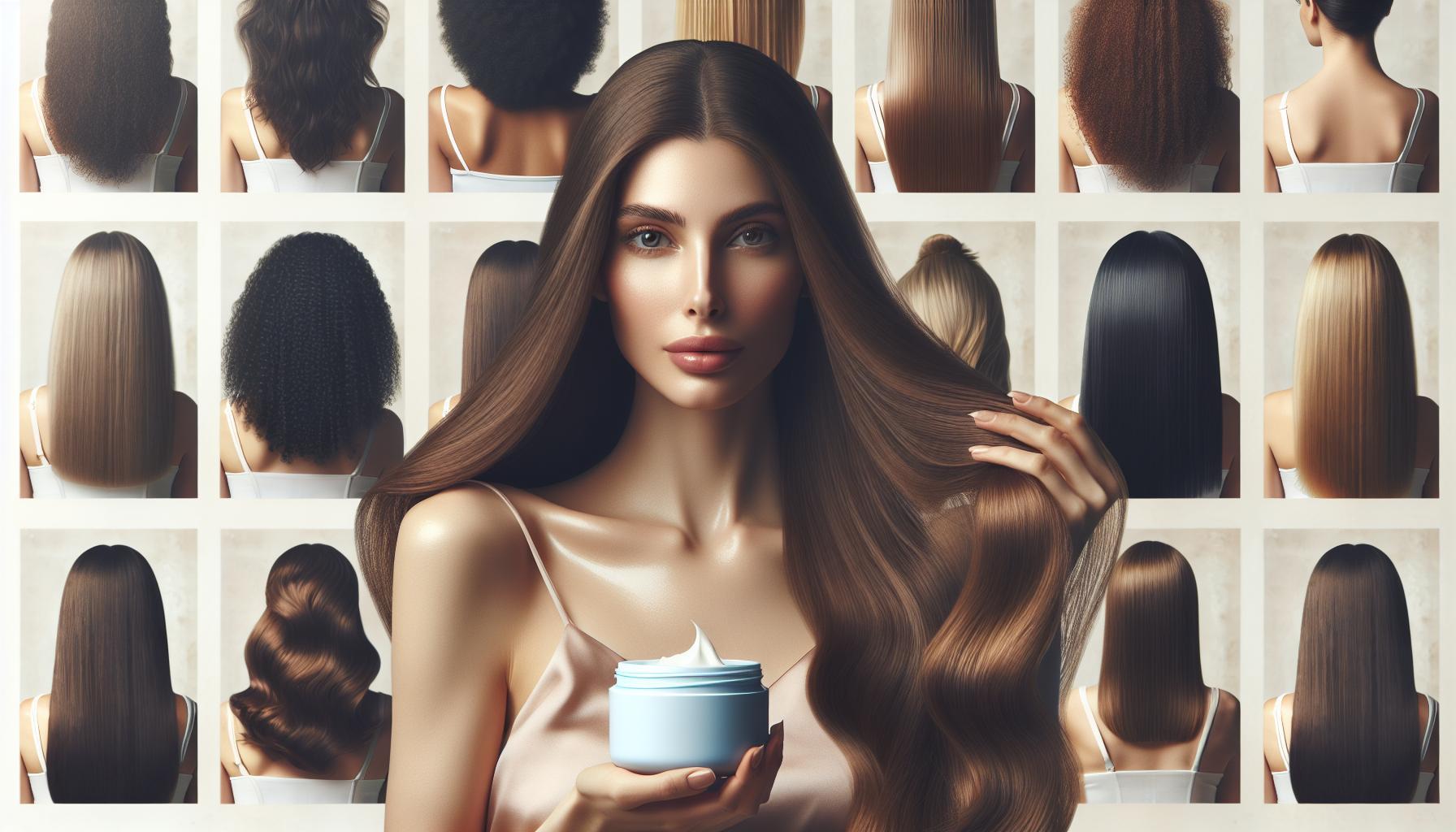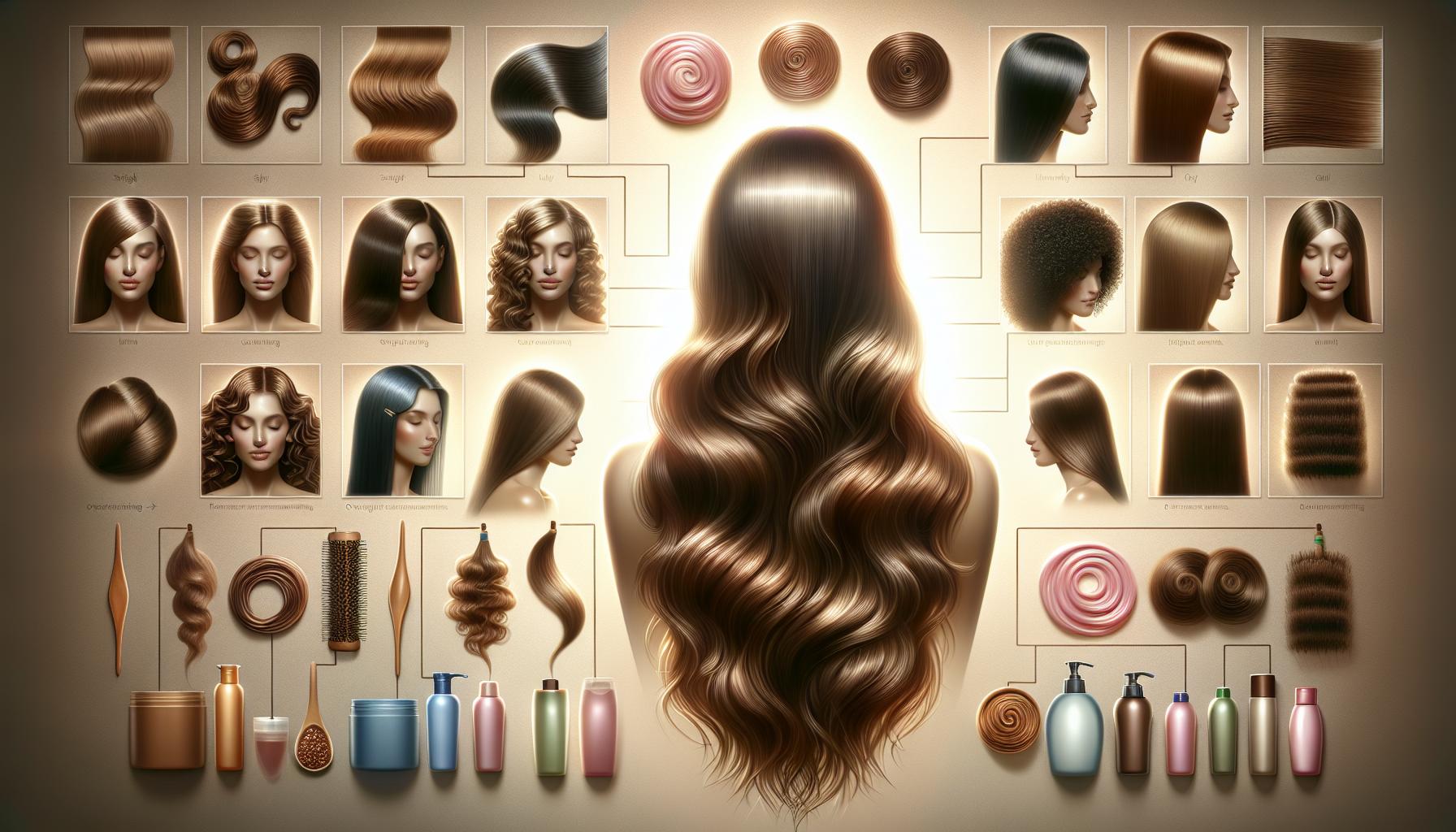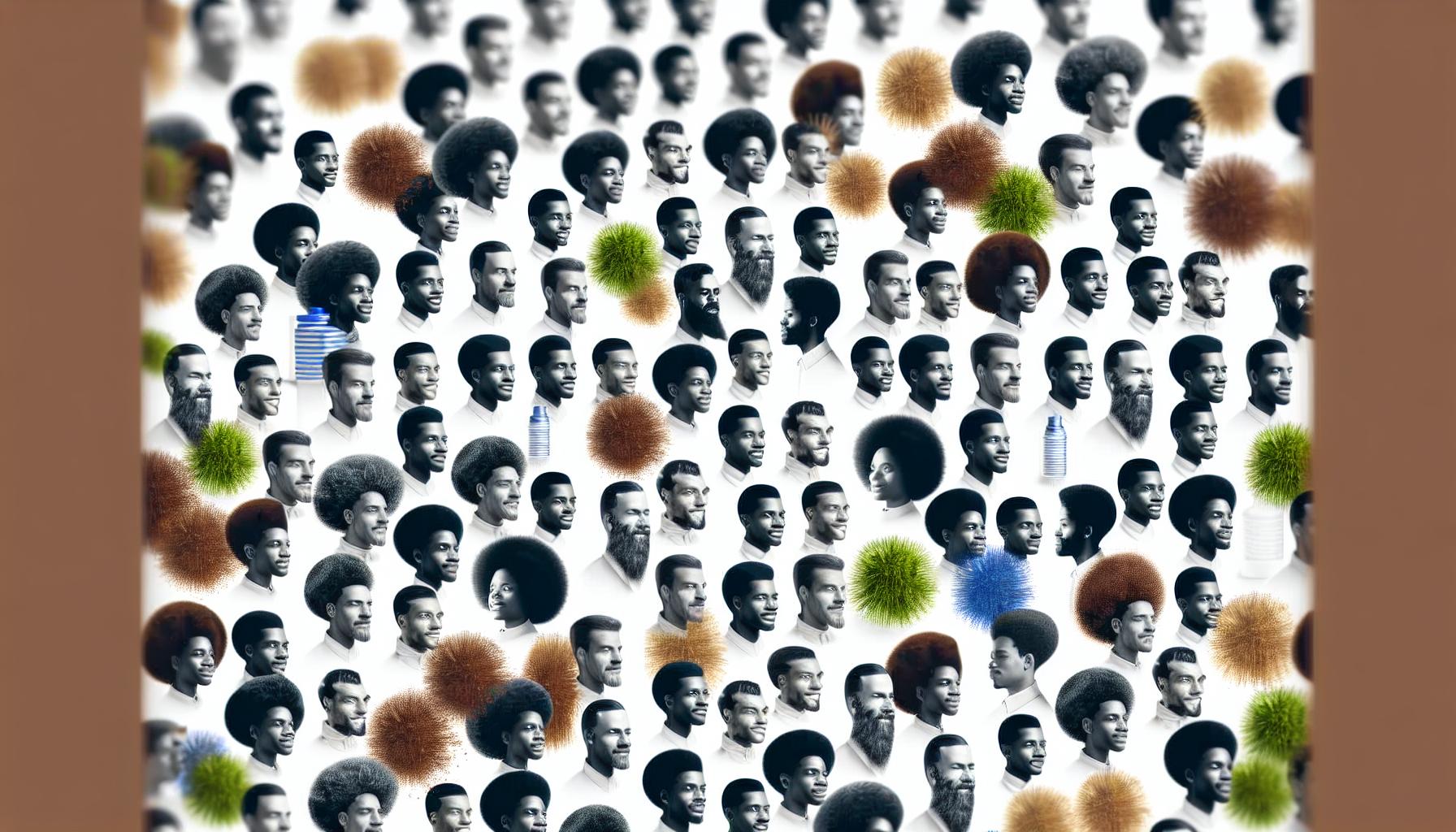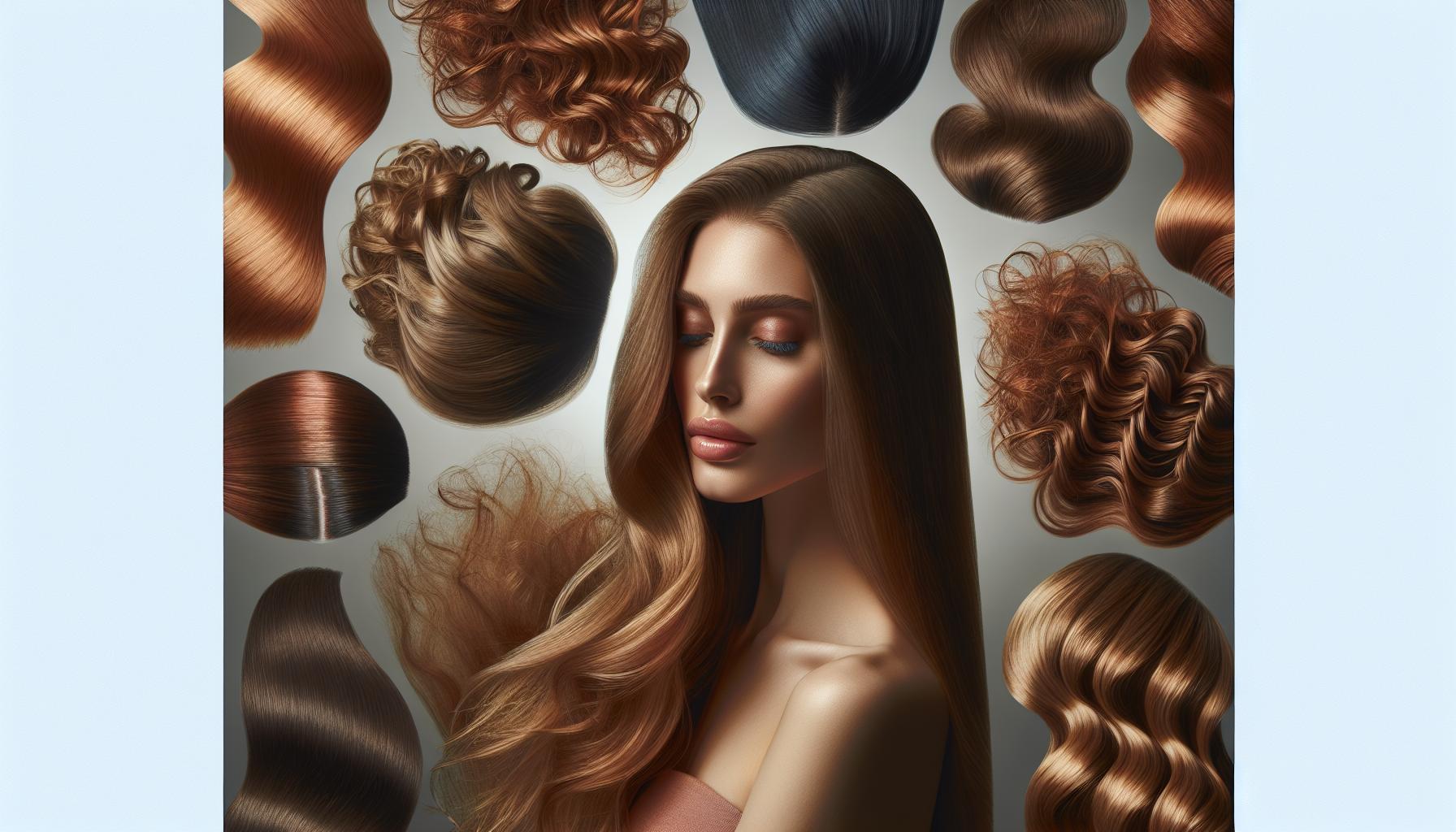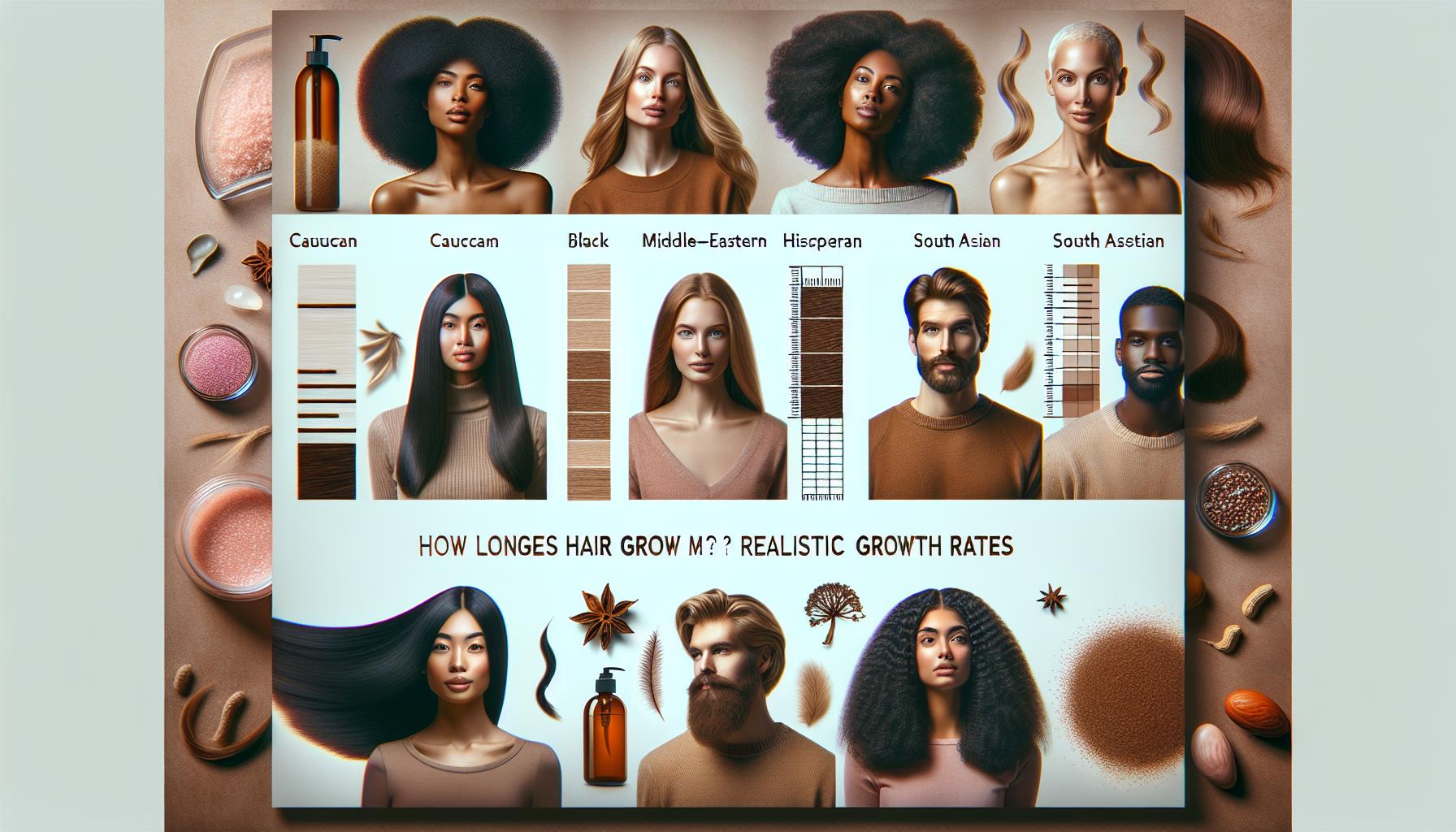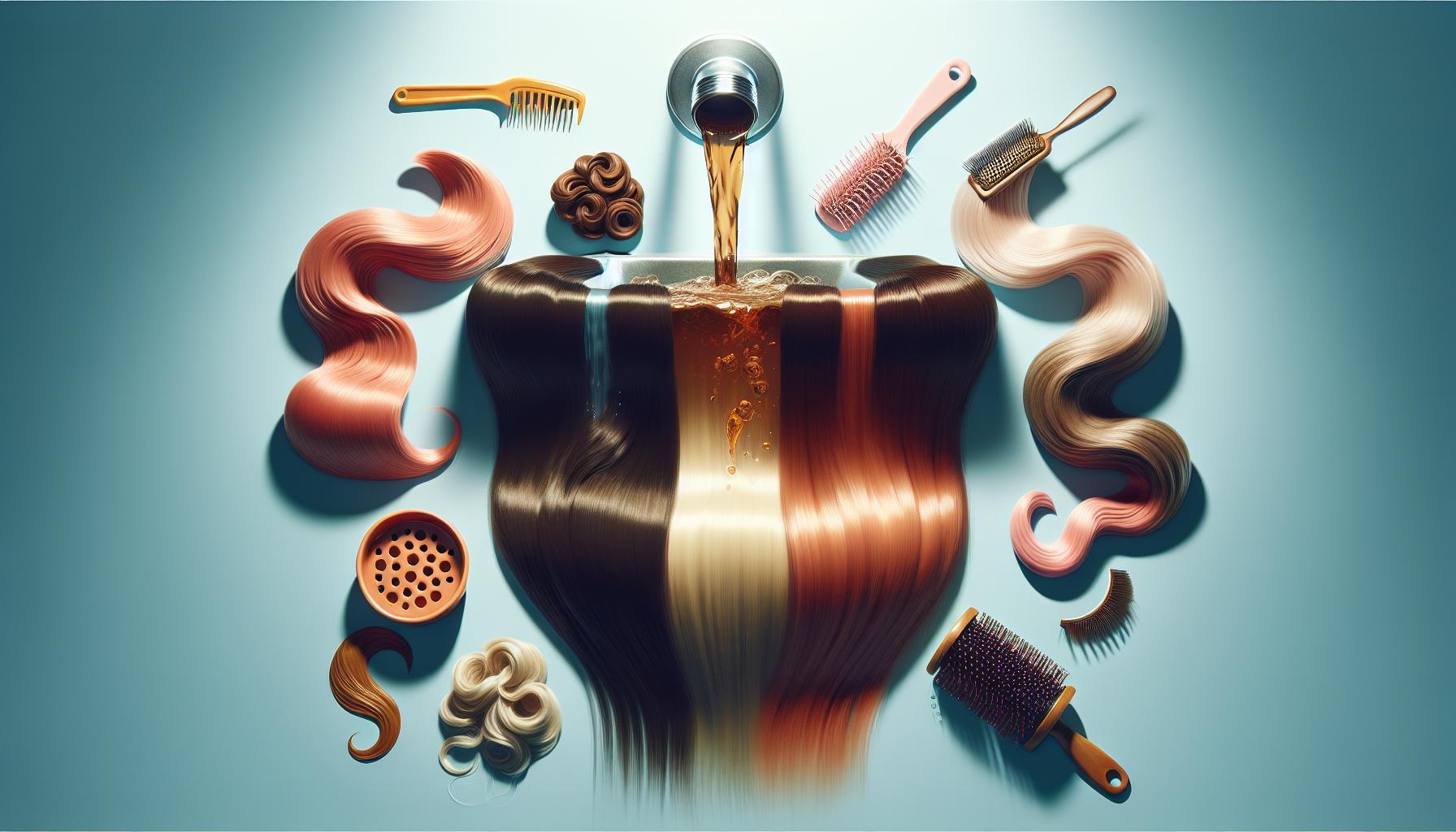Wondering if it’s beneficial or harmful to let conditioner stay in your hair overnight? The truth is, while overnight conditioning can provide intense hydration and softness, it may also lead to residue buildup that weighs hair down. Understanding the effects of prolonged conditioner use is essential for achieving healthy, manageable locks without compromising your hair’s integrity.
Contents
- understanding Hair conditioners: What They Do and How They Work
- The Benefits of Leaving Conditioner in Your Hair Overnight
- Is Overnight Conditioning Right for Your Hair Type?
- How to Properly Apply Leave-In Conditioner for Maximum Effect
- Debunking Myths: Can Leaving Conditioner in Cause Damage?
- Expert Tips for Safely Incorporating Overnight Conditioning into Your Routine
- Signs You Might Be Overdoing It: Listening to Your hair’s Needs
- Alternatives to Overnight Conditioning: Exploring Other Hydration Methods
- Q&A
- Is it okay to leave conditioner in my hair overnight?
- what happens if I leave conditioner in my hair too long?
- Can I use a leave-in conditioner overnight?
- How does overnight deep conditioning affect my hair?
- Why does my hair feel greasy after leaving conditioner in?
- What are the benefits of using a rinse-out conditioner properly?
- Can I still get the benefits of a conditioner if I use it as a leave-in?
- In Summary
understanding Hair conditioners: What They Do and How They Work
Understanding hair conditioners can significantly influence your hair care routine, providing insight into their function and effectiveness. At their core, conditioners are designed to restore moisture, smooth hair cuticles, and enhance manageability. They achieve this through a combination of lubricating agents,humectants,and proteins that penetrate or coat the hair shaft. Though,the effectiveness can vary,notably when considering methods like leaving conditioner in overnight.
When using conditioners, it’s essential to understand how they work in relation to your hair’s needs. As a notable example, deep conditioners and leave-in products are formulated differently, targeting specific concerns such as dryness, damage, or frizz. Leaving a regular rinse-out conditioner in your hair for extended periods, like overnight, might not yield the desired benefits. In fact,some experts suggest that many conventional conditioners are not designed for prolonged exposure,leading to potential residue buildup or even an adverse effect on certain hair types The Benefits of Leaving Conditioner in Your Hair Overnight
When you apply conditioner and allow it to sit overnight, your hair enjoys an intense moisture boost. Ingredients like natural oils, proteins, and humectants work overtime to hydrate and soften the hair. This is particularly beneficial for individuals with coarse or curly hair types that crave extra hydration to maintain their texture and shine. Regular use of overnight conditioning can lead to smoother, more manageable hair. As conditioners fortify the hair’s structure, they can definitely help tame frizz and improve elasticity. results may be especially evident after just a few nights of consistent use. Enhanced manageability can lead to easier styling and a polished look, making it a favorite method among those with unruly hair. for hair that has suffered from heat styling, chemical treatments, or environmental stressors, overnight conditioning can be restorative. The potent mix of ingredients found in many conditioners can help repair cuticle damage and reduce split ends over time. by choosing a high-quality deep conditioner, you are essentially treating your hair while you sleep, resulting in healthier locks by morning. while incorporating this treatment into your routine can seem like a time investment, the benefits far outweigh any potential downsides. For those wondering, “Is it okay to leave conditioner in your hair?”, the answer is a resounding yes, provided that you choose the right product and listen to your hair’s unique needs.with proper care, your strands will not only look revitalized but feel softer and more vibrant, making overnight conditioning a smart addition to your hair care routine. On the flip side, individuals with fine or oily hair may want to approach overnight conditioning with caution. These hair types can become weighed down or greasy if a heavy conditioner is left in for extended periods. In such cases, it’s advisable to use a lighter leave-in conditioner or a moisturizing mist rather than a traditional deep conditioner. This allows for hydration without the risk of stripping volume or creating a slick appearance. To determine if overnight conditioning is right for you, consider the following factors: Ultimately, understanding your specific hair needs is crucial to deciding whether to leave conditioner in overnight. Experimentation might be needed to find the right product and technique that work for you. Always start with less time and gradually increase if your hair responds positively. Be mindful, though, that while it can be beneficial for some, others may find it less effective or even damaging; listen to your hair’s response and adjust your routine accordingly. To start with a solid foundation, it’s crucial to apply leave-in conditioner on clean, damp hair.After you’ve washed your hair, gently blot it with a towel to remove excess water without rubbing vigorously. This step helps prevent damage while allowing the leave-in product to be absorbed effectively. Here’s a simple guide to apply it correctly: Avoid the temptation to oversaturate your hair, as too much conditioner can lead to greasy, heavy strands. Additionally,be cautious about leaving traditional rinse-out conditioners in for extended periods,as they can cause damage over time,especially when left overnight,as highlighted in the article. Incorporating these steps and understanding the nuances of applying leave-in conditioner will enhance your hair care routine. Your hair will not only look vibrant and well-moisturized, but it will also feel healthier, embodying the essence of effective hydration without the drawbacks of overnight conditioner use. Firstly, it’s essential to understand that not all conditioners are designed for leave-in use. Traditional rinse-out conditioners frequently enough contain heavier ingredients that can lead to dryness or a greasy film if left on the hair too long. On the other hand, leave-in conditioners are formulated specifically for additional moisture retention without the risk of buildup or greasiness. If you choose to leave conditioner in your hair overnight, sticking to products labeled as leave-in is a safer bet for maintaining hair health. Additionally, the type of hair you have can influence how conditioner interacts with it. Curly or dry hair types frequently enough benefit from the extra hydration a leave-in conditioner provides, while straight or oily hair might become weighed down. Here are some helpful tips to consider: while overnight conditioning can be beneficial, it must be approached with caution. Not everyone will experience damage from leaving conditioner in; rather,it frequently enough depends on the product type and individual hair characteristics. Educating yourself about the right methods will enable you to maximize the benefits of nightly hair treatments while minimizing any risk of damage, aligning perfectly with the principles discussed in the guide regarding the truth about overnight conditioner use. Incorporating overnight conditioning into your hair care routine can be a transformative experience for your locks, offering deep nourishment and hydration. Though, to maximize the benefits and avoid potential drawbacks, it’s essential to approach this practice with care and informed techniques. While many wonder about the safety and effectiveness of leaving conditioner in your hair overnight, understanding the right methods can lead to healthier, shinier hair. Not all conditioners are designed for overnight use.Opt for a deep conditioner or a specialized overnight treatment that contains hydrating ingredients like natural oils (coconut or argan oil are favorites), keratin, or shea butter. These products are formulated to provide prolonged moisture without overwhelming your hair. When applying your chosen conditioner, the technique can significantly impact your results. Start with clean, damp hair for better absorption, and ensure even distribution to avoid concentrating heavy product on one area, which may cause greasiness. Sleeping with product in your hair can be uncomfortable, but there are ways to mitigate this. Using a satin or silk pillowcase can reduce friction, leading to less breakage and frizz. Alternatively, you may opt for a loose braid or a bun to keep hair contained.
Leaving conditioner in your hair overnight can yield considerable benefits, especially for those seeking to enhance hair health. This practice allows the conditioner to deeply penetrate the hair shaft, providing extended moisture and nourishment. Unlike conventional conditioning that occurs in just a few minutes, overnight treatment significantly increases the chances that beneficial ingredients will effectively mend dry, damaged, or frizzy hair.Deep Hydration
Less Frizz, More Manageability
Repairing Damage
Is Overnight Conditioning Right for Your Hair Type?
While the idea of awakening with soft, hydrated hair might sound appealing, the truth about overnight conditioning is more nuanced and depends significantly on your hair type. For those with frizzy or dry hair,leaving conditioner in overnight can provide much-needed moisture,helping to reduce breakage and improve manageability. However, it’s essential to select the right conditioner—one that is formulated for deep moisture rather than just a regular rinse-out product. Using a product designed for overnight treatment can yield the best results, as it will be formulated to deliver extensive hydration without leading to product buildup.Consider Your Hair’s needs
How to Properly Apply Leave-In Conditioner for Maximum Effect
Leave-in conditioners can be game-changers in achieving soft, manageable hair, but knowing how to apply them correctly is essential for getting the most benefit. Unlike traditional conditioners, which need to be rinsed out, leave-in conditioners provide continuous hydration and protection throughout the day. Understanding the proper method of application ensures your hair receives all the nourishment it needs without risks associated with improper overnight use,as discussed in the article ‘Is It Okay to leave conditioner in Your Hair? Truth about Overnight Use.’Steps for Applying Leave-In Conditioner
Debunking Myths: Can Leaving Conditioner in Cause Damage?
Leaving conditioner in your hair overnight might sound like a great way to boost hydration, but it’s crucial to separate myth from fact to avoid potential damage. Many people assume that more conditioner equals more moisture, but this belief can lead to a buildup that might hinder, rather than help, hair health. Understanding the implications of extended conditioner use can definitely help you make informed decisions for your hair care routine.
Expert Tips for Safely Incorporating Overnight Conditioning into Your Routine
Choose the Right Conditioner
Optimal Application Techniques
Creating a Pleasant Sleeping Environment
| Tip | Description |
|---|---|
| Satin/Silk Pillowcase | Reduces friction and moisture loss while you sleep. |
| Loose Hairstyles | A braid or bun can help keep hair from tangling overnight. |
using a heat cap or a shower cap can also enhance the conditioning process. The warmth allows the conditioner to penetrate deeper into the hair shaft, making the treatment even more effective.
in short, the question of whether it is indeed okay to leave conditioner in your hair overnight comes down to using the right products and techniques.By following these expert tips,you can safely incorporate overnight conditioning into your routine and enjoy the resulting shine and softness.
Signs You Might Be Overdoing It: Listening to Your hair’s Needs
Listening to your hair’s needs is crucial for maintaining its health and vibrancy. Overconditioning is a common mistake that can lead to undesirable results, such as limpness or greasiness. When your hair begins to display signs of distress, it’s essential to recognize and adjust your conditioning routine. There are several clear indicators that you might be overdoing it with your conditioner, especially when considering practices like leaving it in overnight.
Key signs to watch For
- Greasy Roots: If your hair feels oily or unwashed just a day after shampooing,it may indicate that you’re using too much conditioner or leaving it in for too long.
- Weighed-Down Strands: Healthy hair should exhibit bounce and movement. If your locks feel heavy or lack volume, this could signal that you’re over-applying conditioner.
- Breakage and Split Ends: While conditioner is intended to nourish and protect, too much can lead to buildup on the hair shaft, making it prone to damage. Look for signs of breakage or split ends as a critical red flag.
- Increased Frizz: ironically, over-conditioning can sometimes cause frizz. If your hair feels dry and frizzy despite regular conditioning, you might be overdoing it, particularly if you use heavy products.
To effectively recognize these signs, it’s vital to keep a consistent diary of your hair’s condition. Note changes in texture, shine, and manageability after your conditioning routine. This practice can reveal underlying trends and help you tailor your hair care regime more sensitively. Adapting your approach based on the feedback your hair provides can optimize your results and ensure that you are not inadvertently harming your hair’s integrity while seeking benefits, like those discussed in the context of the article, *Is It Okay to Leave Conditioner in Your Hair? Truth About Overnight use*.
remember, a balanced regimen is key; rather than leaving conditioner in overnight regularly, consider using it when your hair truly needs that extra boost. By adjusting the frequency and amount of conditioner you use, alongside maintaining awareness of these signs, you can develop a personalized hair care strategy that effectively addresses your hair’s unique requirements.
Alternatives to Overnight Conditioning: Exploring Other Hydration Methods
When it comes to maintaining healthy hair, overnight conditioning may seem like a tempting solution, but choice hydration methods can also deliver remarkable results without the potential drawbacks. For those who seek rapid fixes or deeper nourishment without the hassle of leaving conditioner in overnight, a plethora of efficient options are available, such as deep conditioning treatments, leave-in conditioners, and hydrating sprays.
Leave-In Conditioners
One effective alternative is incorporating leave-in conditioners into your hair care routine. These products are designed to provide lasting moisture without the need for rinsing, making them an excellent choice for daily hydration. Such as, the Silky Hydration Detangling Leave-In Conditioner from CurlDaze features Kukui Oil, known for its omega fatty acids and vitamins that strengthen hair while adding shine[1[1]. To use effectively,simply apply to damp hair after washing,focusing on the ends which are often the driest. This method not only detangles but also prepares the hair for styling,making it a perfect addition to a busy morning routine.
Hydrating Sprays
Another convenient option is using hydrating sprays, which offer a refreshing burst of moisture throughout the day. Take as an example the Kalahari Melon & Aloe Vera Deep Hydration Multi-Tasking Leave-In from mielle Organics; its continuous spray mechanism ensures that every strand receives hydration uniformly[3[3]. These sprays are perfect for reviving curls or smoothing out frizz, particularly in challenging weather conditions.
Deep Conditioning Treatments
For those needing deeper nourishment, weekly deep conditioning treatments can work wonders. Opt for masks rich in nourishing oils and proteins that are left on for a shorter period, typically 20-30 minutes, instead of overnight.This method allows your hair to absorb essential nutrients without the risk of product buildup or potential irritation from prolonged leave-in solutions.
while the question of whether it’s okay to leave conditioner in your hair overnight depends on individual hair type and product formulation, exploring these alternatives can ensure your locks remain hydrated and healthy. Whether you choose a leave-in conditioner,a hydrating spray,or a deep treatment,these options provide flexibility and effective care tailored to your lifestyle.
Q&A
Is it okay to leave conditioner in my hair overnight?
No, it is indeed generally not recommended to leave rinse-out conditioner in your hair overnight. While conditioners are designed to nourish and moisturize hair, prolonged exposure can lead to product buildup and may not provide the intended benefits.
Conditioners contain ingredients that are optimized for short-term application. Leaving them on for extended periods can weigh your hair down and strip away essential moisture over time.For more effective results, consider using a deep conditioner or hair mask specifically designed for prolonged use.
what happens if I leave conditioner in my hair too long?
If you leave conditioner in your hair for an extended time, it can lead to dryness and brittleness. Hair may become weighed down, and you might notice an increase in tangles or frizz.
Conditioners are formulated to be rinsed out after a short period. Extended usage doesn’t enhance the effect; rather,it could hinder your desired hair health. Consider alternatives like leave-in conditioners if you want longer-lasting benefits.
Can I use a leave-in conditioner overnight?
Yes, leave-in conditioners can be used overnight as they are designed for extended wear. They provide ongoing hydration and protection without causing damage.
Unlike rinse-out conditioners, leave-in options are formulated to be left in the hair and can help improve manageability and shine without leading to product buildup. It’s important to choose a leave-in that suits your hair type and needs.
How does overnight deep conditioning affect my hair?
Overnight deep conditioning can damage your hair rather than help it. Although this method may seem beneficial, it can lead to over-moisturization, leaving hair limp and prone to breakage.
Moderation is key; consider regular deep conditioning treatments instead of overnight solutions. This allows your hair to absorb benefits without the adverse effects of extended exposure.
Why does my hair feel greasy after leaving conditioner in?
Your hair may feel greasy after leaving in conditioner due to product buildup. Rinse-out conditioners are not meant to be used continuously, and exceeding the recommended time can lead to a residue that weighs hair down.
If you’re experiencing this issue, try reducing the amount of product used or switching to a lightweight formula.Regular cleansing helps maintain a healthy balance and avoids that greasy feel.
What are the benefits of using a rinse-out conditioner properly?
Using a rinse-out conditioner properly helps hydrate, smooth, and detangle your hair. It provides nourishment without leading to buildup when used as directed.
Correctly applying and rinsing out conditioner ensures your hair gets the benefits it needs, leaving it soft and manageable. For best results, follow up with a suitable leave-in product for ongoing care.
Can I still get the benefits of a conditioner if I use it as a leave-in?
While you can use some conditioners as leave-in treatments, it’s crucial to use products specifically designed for that purpose. Not all conditioners provide the same benefits and can cause greasiness or buildup if not formulated for leave-in use.
Choosing the right product tailored for leave-in can ensure your hair gets the right amount of moisture without the drawbacks of a traditional conditioner. Check labels and opt for lightweight formulas.
In Summary
the question of whether it’s okay to leave conditioner in your hair overnight hinges on several important factors, including hair type, conditioner formulation, and individual scalp health. While leaving conditioner in can provide deep hydration and enhance manageability for many, it’s essential to choose the right products—opt for lightweight and leave-in specific formulas designed for prolonged use to avoid buildup and scalp issues. For those with finer hair or oily scalps, a leave-in approach may be best in moderation, focusing on the ends to minimize weight.
Make sure to listen to your hair’s needs; if it feels heavy or greasy, consider washing it out sooner. Experiment with different techniques to find what works for you and consult with a dermatologist or hair care expert if you have specific concerns, especially regarding hair loss or damage.By understanding your hair’s unique characteristics and the science behind conditioning agents,you can make empowered decisions for healthier,more beautiful hair. Don’t hesitate to continue exploring hair care options or reach out for personalized advice to address your specific hair challenges!

